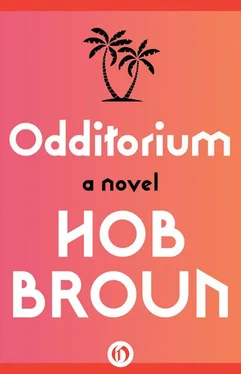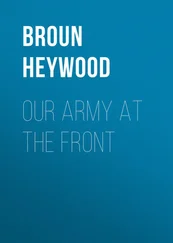“If fun can be a business,” Pete was fond of saying, “then business can be fun.”
He’d been around long enough to know that financial success wasn’t everything. There were plenty of business wizards around, but damn few sportsmen. Real old-time classy sportsmen, he meant, not the bored board chairmen noodling around on the golf course or flying off on those nitwit hunting trips where drugged animals were herded up to the patio. Sparn’s team was much more than a hobby to him, more than a toy to keep him entertained between deals; it was the thing that set him apart and gave him prestige. And so what if his accountants (Pennspar & Kezdekian, of Neptune Street) were unimpressed? What did he care that they said revenues accruing therefrom were inadequate in view of current overall tax judgements? He was a goddamn sportsman.
Every morning, before lifting the smoked Lucite hood of his executive telephone to inaugurate the business day, Sparn read Dolly’s impeccably typewritten boxscores, cumulative batting and fielding averages, as well as the expenses and attendance figures. He pored lovingly over these stats, reveling in the pristine, almost mystical flow of the numbers that Vinnie, the Cougarettes’ manager, had phoned into Dolly the previous night.
“Another extra base hit for Heidi,” Sparn might say. “Let’s move her up in the order.” Or, “That’s three errors this week for Rosie Alonzo. Get her to an optometrist and have her eyes checked.”
Dolly Varden made note of these comments, of every grunt and lifted eyebrow, and relayed them to Vinnie at their next phone contact. She did not mind these extra tasks. She did not mind putting in ten- and twelve-hour days, then taking work home to her one-room apartment. Time did not pass for Dolly Varden. She lived in the haunted, unalterable vacuum of a dream. She was a 53-year-old virgin, silently, hopelessly, agonizingly in love with her boss.
In November of 1946, under the name Flossie McCall, she was doing a specialty act at the Cathay Theatre in Brooklyn. To an uptempo arrangement of “You’re the Top,” she danced up a flight of steps, leaned over backward from the uppermost stair, picked up a glass of beer in her teeth and drank it down. One evening, after a particularly boffo Saturday matinee, a darkly handsome man came to her dressing room and presented his card. He had eyes like grommets.
“Pete Sparn, personal management. You got a great bit there, sugar.”
He took her out for oysters between shows. Dolly was so beguiled that she was unable to swallow her food. When, calling attention to the dessert cart, Sparn touched her bare arm, she felt the membrane surrounding her heart split down the middle, and then a great swelling in her chest, a torrential rush of blood.
So fierce was the heat and excitement within her that at the very next performance she lost her rhythm, plunged from the top of that stairway and broke her back. The doctors said Dolly would never dance again. Confined in a complex traction set-up, she lay in the hospital for weeks, alternately numb and delirious, sometimes afraid to sleep because of the wildly lascivious dreams that would descend on her, leaving her tangled in pulleys and straps, the bedsheets puddled with sweat.
When at least she was released, twenty pounds lighter and using a cane, Dolly had less than ten dollars in the bank and no prospects, but there in the lobby was Sparn with roses, a basket of fruit and the offer of a brand-new career as his personal secretary. The cane clattered to the floor as she grasped his camel’s-hair lapels and sobbed her gratitude.
Sparn paid for typing lessons and a fresh wardrobe (an unflattering selection in severe governess grays). He revamped her grooming habits and put her on a diet of steak and shellfish. He brought her bulging cartons of Billboard and Variety back issues, requiring a daily oral report on what she had read. He coached her in the proper way to behave on the telephone and how to deflect hustlers who came to the office.
“I promised I’d make you into something and I will,” he said.
Dolly proved herself an obedient subject, soaking up information like a sponge, memorizing in less than four days the name and hierarchical rank of every talent booker and summer stock producer in town. She grew into the job with astonishing rapidity, slithered through the office in her corrective shoes, the image of placid efficiency from a vocational slide show. Most of all she wanted to become “indispensable,” and after a while, largely unbeknownst to Sparn, she did. Dolly cast herself in “Man’s Favorite Secretary” as the sympathetic, symbiotic underling who could anticipate the thoughts and wishes of her Boss. But only up to a point, as it turned out.
On the very day when she had at last summoned the courage to invite him home for May wine and sauerbraten by candlelight, Sparn asked her to run down to the engraver’s to pick up his wedding invitations.
That night Dolly destroyed much of the contents of her apartment, and did not return to work until the following week. She did not attend the ceremony uniting Sparn and the 16-year-old daughter of Falco Andretti, importer of olive oil and ricotta cheese. She did not attend the elaborate reception held at the Ansonia Hotel with a thousand dollars’ worth of white chrysanthemums and entertainment by Red Kingston and his Mellow Fellows. She did not join the bon voyage party catching kisses and paper serpentines launched by Sparn and his bride, bound for a Havana honeymoon, from the railing of the S.S. Paloma .
Instead she raged and shivered and wept, living on doughnuts and coffee, sleeping on the linoleum floor of the office and often waking spattered with dried blood from having abused the flesh of her arms and legs during the night with a fountain pen, until that moment when her body became only a body, a pulpy, self-propelled machine, and she did not have to weep ever again.
Now as she stood quietly by his desk awaiting instructions, Dolly did not see a bloated old man, but the handsome Johnny who had come to her dressing room: that smoothly cast face, those black grommet eyes, the swaggering energy she had imagined taking physical form as a crown of cartoon lightbulbs on his head. So much time. So much time that had not passed.
“Think you can clear my calendar for this Friday? Time I sat in on a Cougarettes game.”
“I don’t see any problem. I always hold the fort for you.”
“You’re a gem, Dolly, a gem of the first water.”
The Cougarettes were in command, leading 4–0 after five innings; several at the far end of the batting order went into the stands to hawk candy bars and the souvenir illustrated programs, fifty cents a copy. Flora was on the cover — a grainy action photo taken when she still bleached her hair and wore it in a ponytail. Flora was on page one — a still grainier picture of her shaking hands with Hector Rosario, a welterweight from Miami, and under it some biographical highlights: 70 no-hitters, 23 perfect games, 4500 strikeouts, a lifetime E.R.A. of 1.12. The finishing touch was her unique accomplishment of last season, setting a man down on one pitch, a figure-eight windmill change-up he’d wiffed at three times.
Flora was also on deck. After replenishing her chaw (mentholated snuff inside a wad of bubble gum), she stepped to the plate and rocked a whistling liner into the gap in left center for an inside-the-park home run.
“That’s a Hall-of-Famer, folks. You’re looking at a Hall-of-Famer right there.” Rhythmic clapping from Coach Vinnie Sparn at his position behind the chicken wire screen. “Five up, let’s get some more…. Come on, Wanda, little bingle in there.”
Right next to Vinnie was a plastic trash barrel of iced beer, one dollar a can. Just another managerial task, keeping the crowd happy. He wore a sun helmet, and around his waist, a canvas apron with his initials on it. As Vinnie made change he looked nervously to his left where his father was sitting. Nodding excitedly to himself, Sparn calculated the biorhythm cycles of the Cougarette players on a specialized, mail-order slide rule, and made notes on a pad.
Читать дальше












